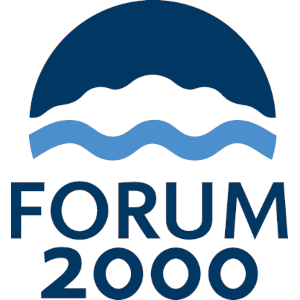Joshua Muravchik
Author, Foreign Policy Expert
Today around the world “democracy . . . finds itself battered and weakened,” reports Freedom House. The group detected declines in freedom in seventy-one countries over the preceding year, with advances in only 35. This caps a twelve-year trend in which altogether 113 countries have experienced declines in freedom while 62 have enjoyed advances.
There is plenty in these numbers to dismay democrats. Nonetheless, the bad news ought not to be exaggerated. Democracy’s “third wave”—to use Samuel Huntington’s metaphor, is not crashing. The first wave, he said, crested with the post-World War One settlements that liberated the nations of Europe from the Hapsburg, Hohenzollern, Romanov, and Ottoman empires. It soon crashed as Mussolini spearheaded a trend of autocracy that destroyed newborn democracy in every southern and eastern European country except Czechoslovakia.
Huntington’s second wave began with the defeat of fascism in World War Two and crested over the ensuing twenty years with decolonization and the christening of independent nations across Africa, the Middle East and parts of Asia. This wave crashed as almost all of these new countries, born with democratic constitutions, soon fell under the rule of indigenous strongmen.
Democracy’s third wave began with the restoration of elected government in Portugal in 1974, spread across the rest of southern Europe and Latin America, parts of East Asia and Africa, cresting with the breakup of the Soviet empire and the USSR itself in 1989 and 1991. The states of the former empire, including all fifteen former Soviet republics--like the states of south and east Europe in the 1920s and those of Africa and Asia in the 1950s and 1960s--began with democratic frameworks, many of which soon disintegrated. Of the fifteen Soviet republics, nine have reverted to dictatorship, and in three others democracy seems wobbly.
Nonetheless, the third wave has not crashed, and it would be hasty to assume that it will. Freedom House measures freedom and democracy in great depth and nuance, and the declines noted above are mostly small ones. Freedom House offers it findings at three levels of detail. Its broadest gauge measurement divides all countries into only three categories: Free, Partly Free, or Not Free.
These categories in turn reflect a finer gradation, in which each country is given a score from 1 to 7, with 1 meaning most free and 7 meaning least free. Countries scoring from 1 to 2.5 are designated “Free.” Those from 3 to 5 are “Partly Free.” Those from 5.5 to 7 are “Not Free.”
Even these numbers simplify a more detailed score, from 0 to 100, compiled by examining dozens of aspects of freedom. Until recently, Freedom House declined to publish these “raw scores” because it feared they were so esoteric as to be confusing.
Today, when Freedom House reports that 113 countries have had declines in freedom, this refers only to this last, most sensitive scorecard. In fact relatively few countries have had their ranking changed on Freedom House’s 1 to 7 scale, and even fewer have moved from free to partly free, or from partly free to not free. For example, the past year, with 71 countries registering declines, only two moved to a worse category, while three others moved to a better one. Yes, there is a global decline in freedom, but most of the changes are not dramatic.
In the 1930s and 1970s, after the first and second waves crashed, the world was left with a small number of democracies, essentially limited to the English-speaking world and northwest Europe. The third wave, in contrast, has ebbed but not crashed. Most countries remain electoral democracies and 45 percent meet Freedom House’s more demanding criteria for being listed as “free.”
There is, to be sure, plenty for devotees of freedom to worry about. Anti-democratic powers—Russia, China, Iran—are acting with growing belligerence while the democracies seem unsure of themselves or worse. Above all this applies to the United States. After eight years of a president averse to exerting US leadership for democracy, America now finds itself with something still worse: a president who shows affinity for autocrats rather than democrats, and seems interested only in economic, not political, goals.
Until America rediscovers its role as champion of liberty, leadership of the democratic camp will have to come from other countries and from dedicated democrats outside of government.
The Forum 2000 Conference along with other gatherings takes place in Prague and a number of other cities.
Since 1997 the conference has attracted a wide array of illustrious personalities, Nobel prize laureates, former and current politicians, businessmen, and many others. Their common experience is carrying the weight of responsibility.

Author, Foreign Policy Expert
Author of the article is Joshua Muravchik, who will speak at the 22nd Forum 2000 Conference.